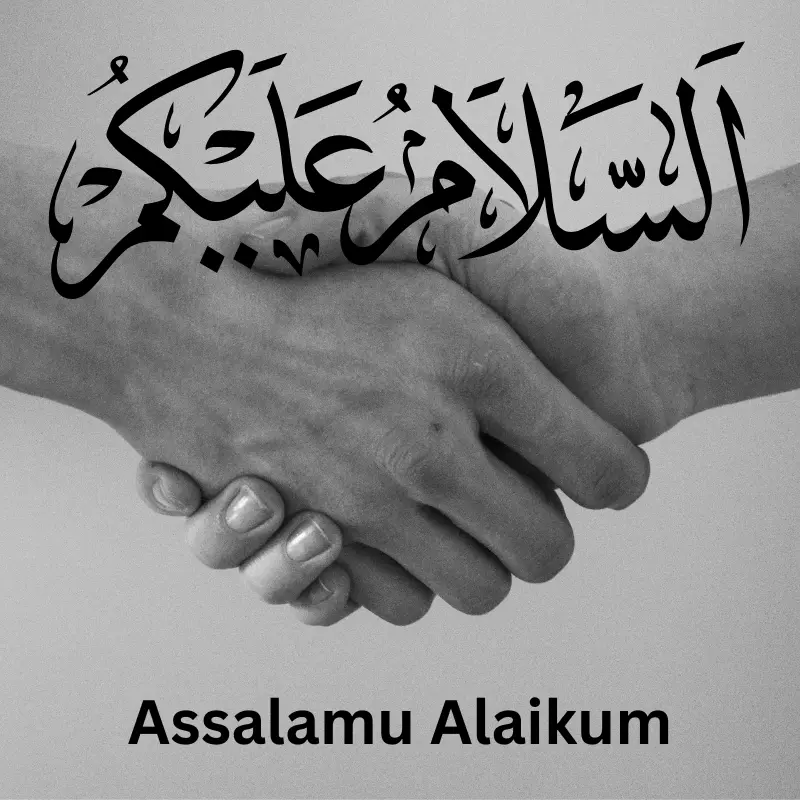Assalamu Alaikum: The Islamic Greeting that Unites Hearts
Assalamu Alaikum! Have you ever wondered about the meaning and significance of this common Islamic greeting? This article will delve into the depths of “Assalamu Alaikum, exploring its translation, usage, cultural context, and its importance in the Muslim community. So, let’s embark on this enlightening journey together.
In Islam, greetings play an essential role in fostering harmony and unity within the community. One of the most recognized and frequently used greetings among Muslims is “Assalamu Alaikum.” It holds deep religious and cultural significance, transcending borders and connecting Muslims worldwide.
Meaning and Translation of Assalamu Alaikum
“Assalamu Alaikum” is an Arabic phrase that translates to “Peace be upon you” in English. It is derived from the root word “salam,” which means peace. The greeting is a combination of two Arabic words: “Assalamu” (peace) and “Alaikum” (upon you).
Aslam o Alikum in Arabic
السلام عليكم ورحمة الله وبركاته
Assalam o Alaikum in Urdu
اَلسَّلامُ عَلَیکُم
Assalam o Alaikum Meaning in Urdu
تجھ پر یا تم پر ہمارا سلام ہو
Assalamu Alaikum Images

Assalamu Alaikum Pronunciation
Usage and Context of Aslam o Alikum
Muslims use the phrase Aslam o Alikum as a standard greeting when meeting or addressing fellow Muslims. It is a way to express well wishes and invoke peace upon the recipient. The greeting is not limited to any specific time or occasion and can be used throughout the day.
Importance of Greeting in Islam
Greeting one another is highly emphasized in Islam as it promotes love, respect, and brotherhood among Muslims. Prophet Muhammad (peace be upon him) encouraged Muslims to greet each other and spread peace in their interactions. The simple act of greeting holds immense rewards and blessings in the eyes of Allah.
Islamic Etiquette for Greeting
To uphold the spirit of Aslam o Alikum, certain etiquettes are recommended in Islam. Here are two important aspects
Responding to the Greeting
Upon receiving the greeting Aslam o Alikum it is customary to respond with Wa Alaikum Assalam, meaning “And peace be upon you too.” This reciprocal response further strengthens the bond of unity and goodwill.
Enhancing the Greeting
Muslims are encouraged to go beyond the basic greeting and extend their well-wishes by adding “Wa Rahmatullahi Wa Barakatuh,” which means “May the mercy and blessings of Allah be upon you.” This additional phrase expresses an earnest desire for the recipient’s well-being and happiness.
Greeting in Different Cultures
The greeting of Aslam o Alikum extends beyond the realm of Islam and finds its place in various cultures, both Muslim and non-Muslim. Let’s explore how the greeting is perceived in different contexts.
Arabic Culture
In Arabic-speaking cultures, Aslam o Alikum is the traditional and preferred form of greeting among Muslims. It reflects the rich heritage and deep-rooted values of the Arabic-speaking nations.
Muslim Countries
Muslim-majority countries around the world embrace ”
as the primary Islamic greeting. It is used in daily life, formal gatherings, and religious ceremonies, uniting people with a common bond of faith.
Non-Muslim Interactions
In multicultural societies, Muslims often use Aslam o Alikum to greet fellow Muslims, while using more common greetings like “Hello” or “Hi” when interacting with people from different religious backgrounds. This inclusive approach fosters understanding and respect among diverse communities.
Significance of Assalamu Alaikum in Muslim Community
The greeting Assalamu Alaikum carries profound significance within the Muslim community. It serves as a reminder of the importance of peace, unity, and the brotherhood/sisterhood shared by all Muslims. By using this greeting, Muslims affirm their identity and their commitment to Islam.
Variations and Similar Greetings
Although Assalamu Alaikum is the most commonly used Islamic greeting, variations exist among different Muslim communities. For example, in some regions, Assalamu Alaikum wa Rahmatullahi is used, which adds an emphasis on seeking Allah’s mercy. Similarly, Aslam o Alikum wa Rahmatullahi wa Barakatuh expands the greeting to include blessings from Allah.
Is Assalamu Alaikum only used by Muslims?
No, Aslam o Alikum is primarily used among Muslims, but it is also recognized and understood by people from various cultural backgrounds.
What is the appropriate response to Assalamu Alaikum?
The appropriate response to Assalamu Alaikum is Wa Alaikum Assalam, which means “And peace be upon you too.”
Can I use “Assalamu Alaikum” when greeting a non-Muslim?
While Aslam o Alikum is traditionally used among Muslims, it is generally best to use more common greetings like “Hello” or “Hi” when interacting with non-Muslims.
How do you respond to assalamualaikum?
When someone greets you with Assalamu Alaikum, it is customary to respond with Wa Alaikum Assalam. This response is a way to reciprocate the greeting and convey the same well-wishes back to the person who greeted you. In English, Wa Alaikum Assalam translates to “And peace be upon you too.” It is a warm and respectful way to acknowledge the greeting and extend your own prayers for peace and blessings.








